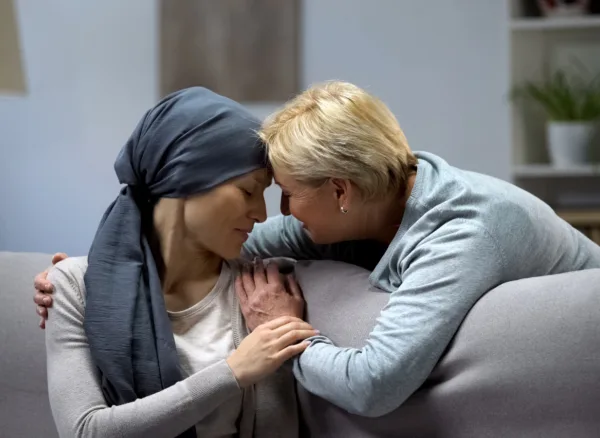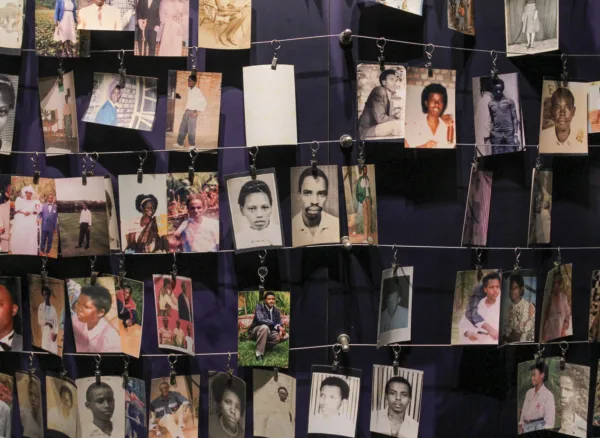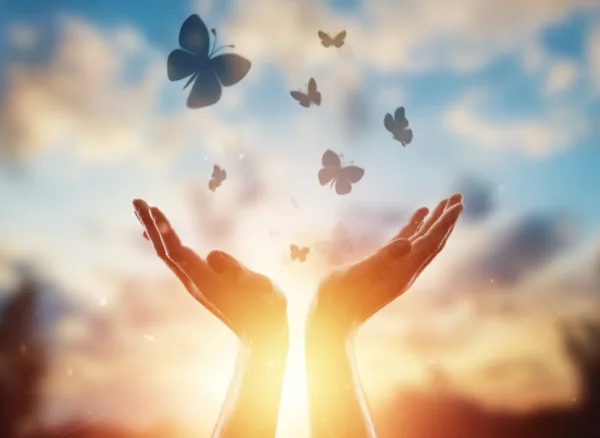Menu

Learnings from the testimonies of Rwandans who suffered through the Genocide against the Tutsi are informing science-backed peace-and-values programs.
“If peace is possible in Rwanda, it is possible everywhere in the world.”
In this video, Freddy Mutanguha discusses his forgiveness journey and life’s work nurturing peace, forgiveness, and reconciliation in his country and across the world.
You'll also learn how Rwanda is dealing with its past through unique pathways, including reconciliation village, and how testimonies of Rwandans are informing research-based peace education.

“Forgiveness is not only for the perpetrators. Forgiveness is for us.”
Freddy Mutanguha, an ethnic Tutsi, lost his parents, four sisters, and 80 extended family members during the genocide. He witnessed and survived many horrific acts.
Today, Mutanguha is a CEO at the Aegis Trust and Director of the Kigali Genocide Memorial. He led the development of Aegis’ peace education program in Rwanda and is now leading Aegis’ work to take this model beyond the borders of Rwanda. "You cannot teach forgiveness. You only experience it," says Mutanguha. "The only way to get people to embrace the path to forgiveness is to put them into that experience." This begins by deeply listening to those who have lived through the atrocity. "We have conversation with survivors to understand exactly what forgiveness means for all of us."
His own forgiveness journey has taken more than 17 years, and still continues on. Mutanghua emphasizes that forgiveness is not solely for those who committed the heinous crimes. "My understanding, and how I explain it to other survivors is: forgiveness is not only for the perpetrators. Forgiveness is for us."
By understanding the details that emerge from these testimonies, "it helps us to not take this path again, but to take path of peace and forgiveness and reconciliation," says Mutanguha. "We want the new generation to come and ask questions and understand the past of their own country. Without learning from the past we cannot build our future."
Templeton World Charity Foundation is funding a researcher-practitioner partnership between Aegis Trust's Kigali Genocide Memorial and the Institute for Applied Research in Youth Development (IARYD) at Tufts University to build a useful theory-of-change model and associated measurement tools informed from testimonials of Rwandans. [Learn more about the project here.]
Elizabeth Dowling, PhD, Deputy Director at IARYD, shares how the researchers will take data that they collect to create science-backed peace-and-values programming at the new Isōko Peace Institute. She says, "The best we could be as a research partner is to capture testimonies in a way that we can serve the world by showing here's what happened in Rwanda. What can we learn from what happened to Rwanda? Because it's almost a miracle that [forgiveness and peace-building efforts] happened at all."
"If peace is possible in Rwanda, it is possible everywhere in the world," says Mutanguha.
Related podcast: Forgiveness & Reconciliation in Post-genocide Rwanda with Freddy Mutanguha-(podcast)
We are pleased to announce that this video is an official selection for the Santa Fe Film Festival 2025! It has also been chosen as an official selection in the Los Angeles Short Film Awards 2025, the New York Film and Cinematography Awards 2025, and the Best Hollywood Day Short Film Festival 2025!

Templeton World Charity Foundation’s “Stories of Impact” videos by journalist and senior media executive Richard Sergay feature human stories and critical perspectives on breakthroughs about the universe’s big questions. The inspiring narratives and observations in these award-winning videos portray the individual and societal impacts of the projects that bring to life TWCF-supported research.




